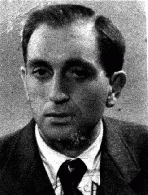You searched for: world%20cup%20v%C3%B2ng%20lo%E1%BA%A1i%E3%80%900242.com%E3%80%91thi%20%C4%91%E1%BA%A5u%20v%C3%B2ng%20lo%E1%BA%A1i%20world%20cup%20c%E1%BB%A7a%20%C4%91%E1%BB%99i%20tuy%E1%BB%83n%20vi%E1%BB%87t%20nam
<< Previous | Displaying results 1376-1400 of 1588 for "world%20cup%20v%C3%B2ng%20lo%E1%BA%A1i%E3%80%900242.com%E3%80%91thi%20%C4%91%E1%BA%A5u%20v%C3%B2ng%20lo%E1%BA%A1i%20world%20cup%20c%E1%BB%A7a%20%C4%91%E1%BB%99i%20tuy%E1%BB%83n%20vi%E1%BB%87t%20nam" | Next >>
-
Karl-Heinz Kusserow
ID CardKarl-Heinz was born during World War I, while his father was in the German army. After the war, his Lutheran parents became Jehovah's Witnesses and gave their children daily Bible lessons. When Karl-Heinz was 13, the family moved to the rustic Westphalian town of Bad Lippspringe. Their home became the headquarters of a new Jehovah's Witness congregation. 1933-39: Because of the Jehovah's Witnesses' missionary work, and because their sole allegiance was to God and His commandments, their activities were…
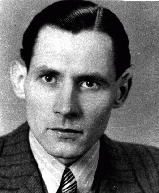
-
Joseph von Hoppen Waldhorn
ID CardJoseph was the youngest of three children born to immigrant Jewish parents. His Polish-born father was a former officer in the Austro-Hungarian army who had met and married Joseph's Hungarian-born mother during World War I. Joseph was raised in a religious household and grew up speaking French. 1933-39: Joseph's mother says it's better here in Paris than in the poor village where she grew up. Unlike his mother, who speaks broken French, Joseph and his older sisters have grown up speaking French fluently.…
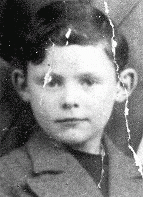
-
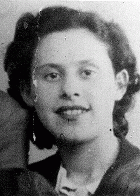
-
Fischel (Philip) Goldstein
ID CardFischel was the youngest of five children. He came from a Jewish family of artisans; his father was a tailor, his uncles were furriers, and his sister was a dressmaker. Fischel started his education at a Jewish parochial school at age 3, where he studied Hebrew and Yiddish. He continued his education at Jewish private schools until age 10, when he entered Polish public schools. 1933-39: After graduating from the Polish public school system at age 14, Fischel started an apprenticeship in his father's…
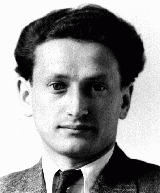
-
Faiga Grynbaum
ID CardFaiga was one of nine children born to religious Jewish parents in Starachowice, a town in east-central Poland. Their small one-story house served as both the family's residence and their tailor shop. Faiga worked in the shop sewing women's clothes; the tailoring was often done in exchange for goods such as firewood or a sack of potatoes. 1933-39: In 1935 Faiga married Haskel Ochervitch. She moved to Kielce, a larger town some 25 miles southwest of Starachowice, where her husband worked selling meat to…
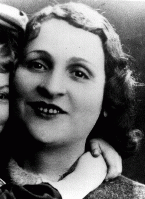
-
Pinchas Galperin
ID CardPinchas was one of 16 children born to a Jewish family. Only nine of the Galperin children lived to adulthood. Pinchas' father worked as a typesetter for a Jewish newspaper and his mother ran a small grocery store. After World War I, Pinchas married Sara Bernstein and the couple moved to Siauliai, Lithuania, where they raised three children. 1933-39: Pinchas and Sara owned and ran a dairy store where they sold milk, butter and cheese that they bought from local farmers. Every morning they would rise early…
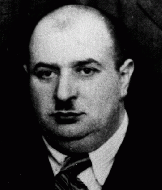
-
Norbert Yasharoff
ID CardNorbert was born to a Jewish family in the Bulgarian capital of Sofia. His father, a prominent lawyer, was also active in the Jewish community, heading relief efforts for the city's Jewish orphans. Sofia was home to approximately half of Bulgaria's estimated 50,000 Jews during the mid-1930s. 1933-39: On September 1, 1939, while on a family vacation the Yasharoffs heard over the radio that war [World War II] had begun. Norbert's parents exchanged worried glances; what would happen to them now? Bulgaria had…
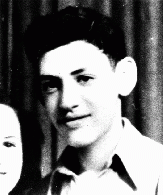
-
Nikola Mrvos
ID CardThe oldest of five children, Nikola was born in a small village in the Croatian part of Yugoslavia. Like his parents, Nikola was baptized in the Serbian Orthodox faith. After receiving his medical degree from Prague University, he married, and in 1912 moved with his wife to Serbia. During World War I he served in the Serbian army, and then settled in Novi Sad where he co-owned a medical clinic. 1933-39: Nikola and his wife raised three children in Novi Sad. Then difficult times brought on by the 1930s…
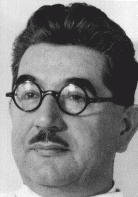
-
Wolfgang Lachman
ID CardWolfgang was the only son of observant Jewish parents living in Berlin. Though trained as a mechanical engineer, Wolfgang's father ran a wholesale kerchief and handkerchief business that he had taken over from his father-in-law. Wolfgang's family lived in an apartment above the business. They enjoyed vacationing at their country home in Neuenhagen, a suburb of Berlin. 1933-39: Wolfgang began school when he was 5; that year Hitler was named leader of Germany. Every morning they had to sing three songs: the…
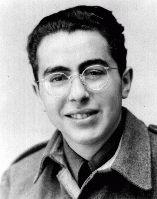
-
Jenine Gutman
ID CardJenine was the younger of two daughters born to Jewish parents. They lived in a small city with a large Jewish population in central Moldavia. Her father, a veteran of World War I, came from a large family and Jenine had more than 15 aunts and uncles, all living in Bacau. This extended family helped raise Jenine and her sister Sofia while their parents ran a grocery store. 1933-39: Just like every child her age, Jenine belonged to a national youth organization headed by Prince Michael. They wore special…
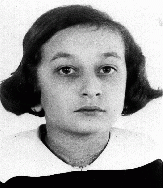
-
Paul Matasovski
ID CardPaul was one of three children born to Jewish parents. They lived in a small city with a large Jewish population in central Moldavia. Paul's Ukrainian-born father had been stationed in Romania during World War I, and chose to remain there rather than return to Ukraine after the 1917 Russian Revolution. 1933-39: Paul's household observed the Jewish holidays. He loved Passover with its special meals and the opportunity to show off new clothes. On the radio his family heard about the Nazis in Germany; in…
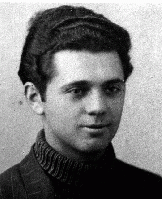
-
Wladyslaw Tadeusz Surmacki
ID CardBorn to Catholic parents, Wladyslaw attended schools in Warsaw and earned a degree in survey engineering in Moscow in 1914. After fighting in World War I, he commanded a horse artillery division in Warsaw, worked for Poland's Military Geographic Institute, and taught topography courses. He started a family in 1925, and after he retired from the army in 1929 he founded a surveying company. 1933-39: When war with Germany became imminent in the summer of 1939, Wladyslaw volunteered to fight but was rejected…
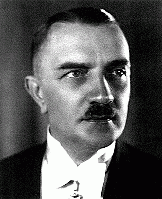
-
Julian Noga
ID CardAlthough Julian's Polish Catholic parents had immigrated to the United States before World War I, his mother had returned to Poland and Julian was born in a village not far from the large town of Tarnow in southern Poland. Julian was raised in Skrzynka by his mother on her four-acre farm while his father remained in the United States. 1933-39: At 16 Julian left home and worked as a dishwasher in an elegant Jewish club in downtown Tarnow. When the Germans invaded in September 1939, he returned to his…
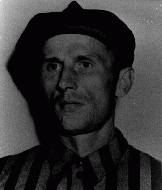
-
Erzsebeth Buchsbaum
ID CardErzsebeth was raised in Budapest, where her Polish-born Jewish parents had lived since before World War I. Her father, a brush salesman, fought for the Austro-Hungarian forces in that war. The Buchsbaums' apartment was in the same building as a movie house. There was a small alcove in the apartment, and Erzsebeth's brother, Herman, made a hole in the wall so that they could watch the films. 1933-39: Every summer Erzsebeth, Herman, and their mother took a special trip to Stebnik, Poland, to visit Grandma.…
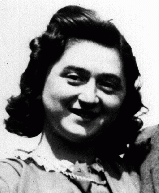
-
Pola Nussbaum
ID CardPola was born to a Jewish family in a small town [in Poland] about three miles from the German border. Her family had lived there for generations. Pola's father exported geese and other goods to Germany; her mother owned a fabric store. They lived with Pola's grandmother in a large, single-level, gray stucco house. Raczki had a small Jewish community with a Hebrew school that Pola attended. 1933-39: In 1937 Pola began secondary school in the town of Suwalki. She excelled in math, and hoped to study…
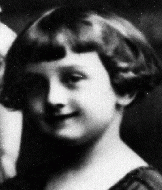
-
Benjamin Bornstein
ID CardBenjamin and his younger brother Zigmush were born to Jewish parents in the industrial city of Lodz. Lodz was Poland's second biggest city before the war, and one-third of its inhabitants were Jewish. Benjamin's father, Moshe, owned a candle factory, and his mother, Brona, was a nurse. 1933-39: In 1939, as Benjamin began the third grade, the Germans occupied Lodz. Jews were forbidden to ride buses, and were ordered to wear yellow stars. Because the Germans sometimes grabbed Jews off the streets for forced…
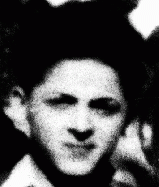
-
Gerda Blachmann
ID CardGerda was an only child of Jewish parents. They lived in Breslau, a large industrial city on the Oder River. Before World War II, Breslau's Jewish community was the third largest in Germany. Her father worked as a salesman for a large hardware and building materials company. Gerda attended public school until age 9 when she was admitted to a Catholic girls' school. 1933-39: Gerda walked through the city to see the aftermath of a pogrom. The windows of Jewish shops had been shattered. A torched synagogue…
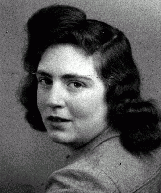
-
Helene Melanie Lebel
ID CardThe elder of two daughters born to a Jewish father and a Catholic mother, Helene was raised as a Catholic in Vienna. Her father died in action during World War I when Helene was just 5 years old, and her mother remarried when Helene was 15. Known affectionately as Helly, Helene loved to swim and go to the opera. After finishing her secondary education she entered law school. 1933-39: At 19 Helene first showed signs of mental illness. Her condition worsened during 1934, and by 1935 she had to give up her…
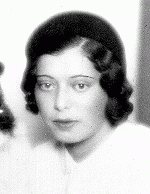
-
Gregor Wohlfahrt
ID CardGregor was born in a village in the part of Austria known as Carinthia. During World War I, he served in the Austro-Hungarian army and was wounded. Raised a Catholic, Gregor and his wife became Jehovah's Witnesses during the late 1920s. Gregor supported his wife and six children by working as a farmer and quarryman. 1933-39: The Austrian government banned Jehovah's Witness missionary work in 1936. Gregor was accused of peddling without a license and briefly jailed. When Germany annexed Austria in 1938,…
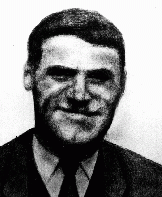
-
Rémy Dumoncel
ID CardRémy was born in a small French town to Catholic parents. In 1913, after studying law at the University of Paris, he joined the Tallandier publishing house in Paris. During World War I he served in the French army and was wounded five times. He returned to work at Tallandier after the war, and in 1919 he married Germaine Tallandier, the daughter of the owner. They had five children whom they raised as devout Catholics. 1933-39: In 1935 Rémy became the mayor of Avon, a small town about 35 miles southeast…
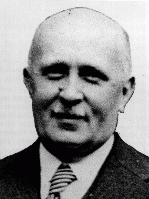
-
Ernest G. Heppner
ID CardErnest was one of three children born to a Jewish family in the commercial city of Breslau, which had one of the largest Jewish communities in Germany. His father, a World War I veteran, owned a factory that made matzah, the unleavened bread used during the Jewish holiday of Passover. Ernest was 12 when Hitler took power in 1933. 1933-39: Ernest often got in trouble at school because people called him names. "Christ-killer" and "your father kills Christian babies for Passover" were common taunts. Many…
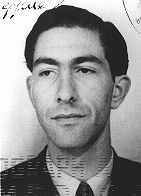
-
Iosif Rivkin
ID CardIosif was born to a Jewish family in the Belorussian capital of Minsk. He fought with the Tsarist troops in World War I and was taken prisoner by the Germans. When he returned to Minsk after the war, he began working in a state-owned factory building furniture, an occupation in which a number of his relatives also made a living. 1933-39: By the early 1930s, Iosif was married and had three daughters, Hacia, Dora and Berta. The family lived on Novomesnitskaya Street in central Minsk, near the Svisloch…
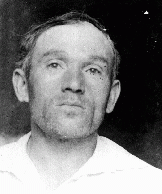
-
Dora Rivkina
ID CardDora was the second of three girls born to a Jewish family in Minsk, the capital of Belorussia. Before World War II, more than a third of the city was Jewish. Dora and her family lived on Novomesnitskaya Street in central Minsk. Dora's father worked in a state-owned factory building furniture. 1933-39: As a young girl, Dora was athletic and excelled at swimming and dancing. When she was in the second grade, she was chosen to dance the lead part in a New Year's performance. She was also a member of the…
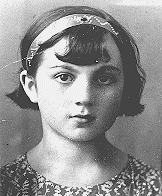
-
Hacia Rivkina
ID CardHacia was the oldest of three girls born to a Jewish family in Minsk, the capital of Belorussia. Before World War II, more than a third of the city was Jewish. Hacia's father worked in a state-owned factory building furniture, an occupation in which several of his relatives also made a living. Hacia attended Soviet public schools throughout the late 1920s and early 1930s. 1933-39: The Rivkins' home was in central Minsk, on Novomesnitskaya Street. Hacia was a talented singer and was known as being the best…
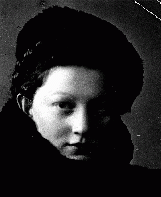
-
Chil Meyer Rajchman
ID CardChil was one of six children born to a Jewish family in the industrial city of Lodz. His mother died before World War II, leaving his father to raise the family. Chil's father could not sustain the family financially, so Chil, as the eldest male child, went to work to help support his brothers and sisters. 1933-39: On September 1, 1939, the Germans invaded Poland. Chil fled Lodz with his younger sister to Pruszkow, a small town 10 miles southwest of Warsaw, where there were fewer restrictions on Jews.…
